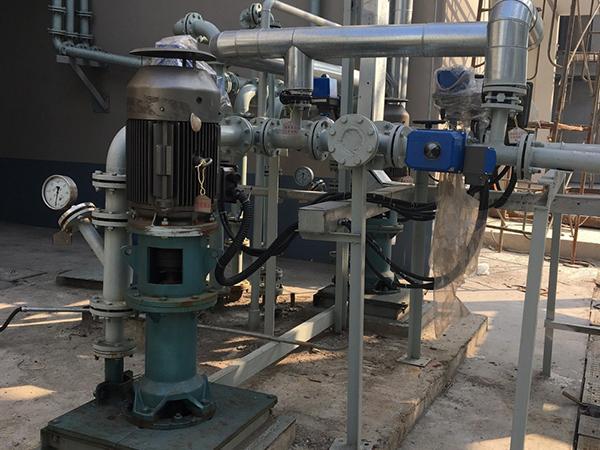Hungarian
- Afrikaans
- Albanian
- Amharic
- Arabic
- Armenian
- Azerbaijani
- Basque
- Belarusian
- Bengali
- Bosnian
- Bulgarian
- Catalan
- Cebuano
- Corsican
- Croatian
- Czech
- Danish
- Dutch
- English
- Esperanto
- Estonian
- Finnish
- French
- Frisian
- Galician
- Georgian
- German
- Greek
- Gujarati
- Haitian Creole
- hausa
- hawaiian
- Hebrew
- Hindi
- Miao
- Hungarian
- Icelandic
- igbo
- Indonesian
- irish
- Italian
- Japanese
- Javanese
- Kannada
- kazakh
- Khmer
- Rwandese
- Korean
- Kurdish
- Kyrgyz
- Lao
- Latin
- Latvian
- Lithuanian
- Luxembourgish
- Macedonian
- Malgashi
- Malay
- Malayalam
- Maltese
- Maori
- Marathi
- Mongolian
- Myanmar
- Nepali
- Norwegian
- Norwegian
- Occitan
- Pashto
- Persian
- Polish
- Portuguese
- Punjabi
- Romanian
- Russian
- Samoan
- Scottish Gaelic
- Serbian
- Sesotho
- Shona
- Sindhi
- Sinhala
- Slovak
- Slovenian
- Somali
- Spanish
- Sundanese
- Swahili
- Swedish
- Tagalog
- Tajik
- Tamil
- Tatar
- Telugu
- Thai
- Turkish
- Turkmen
- Ukrainian
- Urdu
- Uighur
- Uzbek
- Vietnamese
- Welsh
- Bantu
- Yiddish
- Yoruba
- Zulu
Telephone: +86 13120555503
Email: frank@cypump.com
okt . 15, 2024 20:33 Back to list
Vertical Chemical Pump Solutions for Efficient Fluid Transfer and Management Systems
Understanding Vertical Chemical Pumps Applications and Advantages
In the realm of industrial fluid management, vertical chemical pumps play a critical role in the safe and efficient handling of various liquids, particularly in chemical processing, water treatment, and other specialized applications. Their design, functionality, and operational benefits make them a preferred choice in many industries. In this article, we'll explore the anatomy, applications, and advantages of vertical chemical pumps.
What is a Vertical Chemical Pump?
A vertical chemical pump is a type of centrifugal pump characterized by its vertical orientation. Unlike horizontal pumps, which lay flat, vertical pumps are designed to be upright, thus optimizing space and facilitating easier installations in confined areas. The pump casing is usually submerged within the liquid it processes, making it highly efficient for specific applications.
These pumps are particularly suitable for transferring corrosive or hazardous liquids, as they are constructed from materials that can withstand aggressive chemicals. Common materials include stainless steel, plastic, and various alloys, depending on the specific fluids being handled.
Key Components
The main components of a vertical chemical pump include
1. Impeller This rotating part is responsible for creating flow by imparting kinetic energy to the fluid. 2. Suction Strainer Located at the base, it prevents debris from entering the pump, protecting the impeller and maintaining efficiency. 3. Motor Typically mounted above the pump, a motor drives the impeller. Vertical pumps may come with electric or hydraulic motors, depending on application requirements. 4. Volute Casing This component collects the fluid expelled from the impeller and directs it towards the discharge outlet. 5. Mechanical Seal Helps to prevent leaks by sealing the area where the shaft enters the pump casing.
Applications
Vertical chemical pumps find applications in various sectors, including
vertical chemical pump

- Chemical Processing They efficiently transport aggressive acids, caustics, and other hazardous materials in manufacturing processes. - Water Treatment Used for pumping and mixing chemicals for water purification, these pumps help in the treatment of municipal and industrial wastewater. - Food and Beverage Specially designed models ensure the safe handling of food-grade chemicals and liquids. - Pharmaceutical Vertical pumps are used for transferring sensitive substances, ensuring compliance with strict health and safety regulations. - Mining and Minerals They are employed to transfer corrosive fluids involved in mineral extraction processes.
Advantages of Vertical Chemical Pumps
1. Space Efficiency The vertical design allows for installation in tight spaces, maximizing facility floor area. This is particularly important in plants with limited ground space or height restrictions.
2. High Efficiency These pumps are optimized for handling specific types of fluids, leading to minimal energy loss and high operational efficiency. The submerged design minimizes cavitation, improving longevity and performance.
3. Reduced Maintenance The mechanical seals and bearing types used in vertical pumps are designed for long service life, reducing the frequency of breakdowns and maintenance interventions.
4. Versatility They can handle a wide range of flow rates and are compatible with various liquid types, from viscous to volatile, making them adaptable for different industries.
5. Safety With their design and material options, vertical chemical pumps minimize the risk of leaks and spills, which is crucial when dealing with hazardous substances. Furthermore, their installation often ensures that any potential spills are contained within controlled areas.
6. Temperature and Pressure Resistance Vertical chemical pumps can be engineered to withstand extreme temperatures and pressures, making them ideal for challenging operational environments.
Conclusion
Vertical chemical pumps serve a vital function in efficiently managing a variety of fluids in numerous industrial applications. Their design, which emphasizes space efficiency and adaptability, allows for their use across many sectors, providing safety and reliability. Investing in quality vertical pumps can lead to significant improvements in operational efficiency, enhancing overall productivity while ensuring the safe handling of potentially hazardous materials. As industries continue to evolve, the importance of specialized equipment like vertical chemical pumps cannot be overstated, making them essential tools in modern industrial operations.
-
Custom Drilling Mud and Slurry Pump Supplier - High Efficiency, Tailored Solutions
NewsJun.10,2025
-
Supply Vertical Submersible Sewage Pump High-Efficiency WQ/QW Pumps Supplier
NewsJun.10,2025
-
Premium Sewage Ejection System & Pumps Efficient Waste Removal
NewsJun.09,2025
-
Premium Wholesale Slurry Pump Impellers Durable & Efficient Slurry Handling
NewsJun.09,2025
-
Top Sewage Pump Companies Durable Industrial Solutions for Efficiency
NewsJun.09,2025
-
Heavy Duty Slurry Pumps - OEM High Performance & Bulk Wholesale
NewsJun.09,2025










